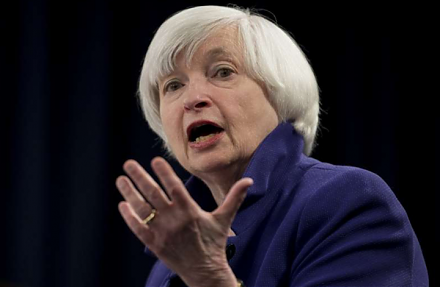

2018-10-21 14:40:00 Sun ET
treasury deficit debt employment inflation interest rate macrofinance fiscal stimulus economic growth fiscal budget public finance treasury bond treasury yield sovereign debt sovereign wealth fund tax cuts government expenditures
President Trump floats generous 10% tax cuts for the U.S. middle class ahead of the November 2018 mid-term elections. Republican senators, congressmen, and congresswomen can propose massive tax cuts for middle-income Americans. This time may be a bit different, and President Trump expects the tax bill to go through Congress but not an executive order. The Trump administration suggests that the legislative vote will likely take place soon after the mid-term elections. The strategic move boosts confidence in the Republican lawmakers who can continue to control Congress. Treasury Secretary Steven Mnuchin cannot offer details on the middle-income tax brackets that can experience lower effective tax rates. This tax bill may add to the prior $1.5 trillion tax cuts and $779 billion fiscal deficits.
Republican leaders and senators emphasize that this tax bill will finance itself with better real GDP economic growth in the healthy upper range of 3%-4%. The Trump administration can offset these new tax cuts with lower government expenditures in Medicare, Medicaid, and social security. Alternatively, the Trump administration can raise effective tax rates for most rich Americans in the top 1% socioeconomic echelon to partially offset the new tax cuts for the U.S. middle-class.
If any of our AYA Analytica financial health memos (FHM), blog posts, ebooks, newsletters, and notifications etc, or any other form of online content curation, involves potential copyright concerns, please feel free to contact us at service@ayafintech.network so that we can remove relevant content in response to any such request within a reasonable time frame.
2019-10-01 11:33:00 Tuesday ET

The Trump administration postpones increasing 25% to 30% tariffs on $250 billion Chinese imports after China extends an olive branch to de-escalate Sino-Ame
2016-10-19 00:00:00 Wednesday ET

India's equivalent to Warren Buffett in America, Rakesh Jhunjhunwala, offers several key lessons for stock market investors: When the press o
2023-12-07 07:22:00 Thursday ET

Economic policy incrementalism for better fiscal and monetary policy coordination Traditionally, fiscal and monetary policies were made incrementally. In
2023-05-31 03:15:40 Wednesday ET

The U.S. further derisks and decouples from China. Why does the U.S. seek to further economically decouple from China? In recent times, th
2025-10-13 12:32:00 Monday ET

Stock Synopsis: With a new Python program, we use, adapt, apply, and leverage each of the mainstream Gemini Gen AI models to conduct this comprehensive fund
2017-02-13 09:35:00 Monday ET

JPMorgan Chase CEO Jamie Dimon says President Trump has now awaken the *animal spirits* in the U.S. stock market. The key phrase, animal spirits, is the